Wildflower: Helping Kids Rediscover Life After Loss

O n March 28, 2004. Shondelle Davis and her 2-year-old daughter Josephina attended church. Her husband, Terry, stayed home with their son Johnny. At 46, Terry had diabetes and a recent leg amputation. He was back to work, and the family was intact and functioning – until it wasn’t.
Later that day, Johnny, then 11, went to shoot hoops with his friends while Shondelle and Josephina drove Terry to see his mother. Seconds into the journey, he called out Shondelle’s name and died. Although CPR was administered, he was pronounced at the hospital. The couple had six children, two in college, and two in their own homes, leaving everyone shocked and the toddler and the teen still needing parenting.
Terry’s sudden death left Shondelle and her kids with a lot of grief.
“I don’t think when my husband passed that I properly grieved,” Shondelle said. How could she? Three of her children, she said, were hospitalized after Terry’s death.
“I just remember every last one of us on different medications. It was a challenging time.”
There was more to come.
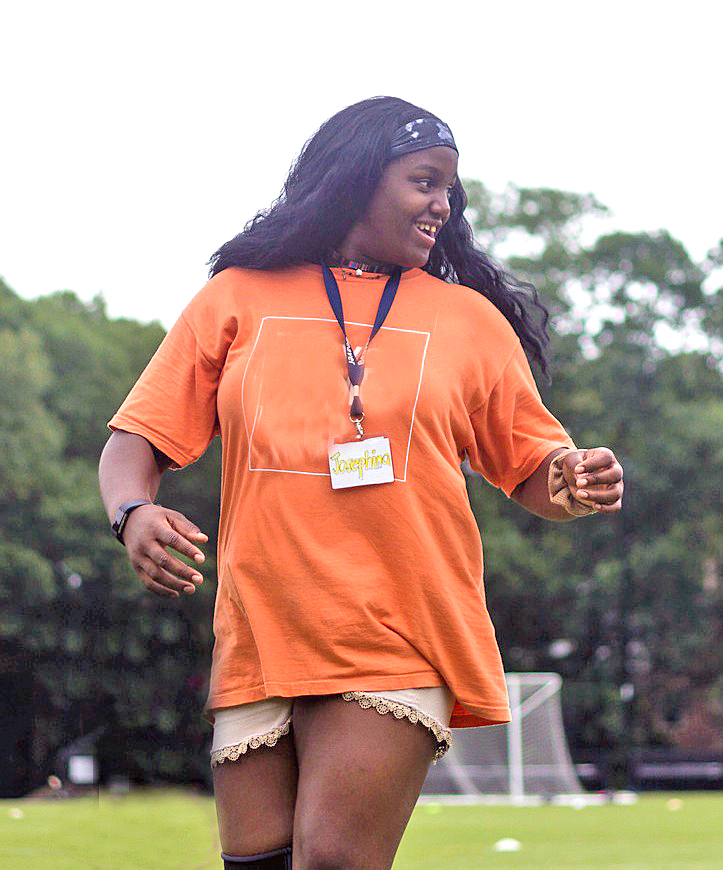
On April 24, 2009. Johnny, a sports-loving trophy-winning math wizard, was killed in the street near his Boston home. He had just turned 18. Josephina was then seven.
Josephina doesn’t recall her father’s death but remembers Johnny’s. She, Shondelle, and the rest of the Davis family were left to navigate the senseless loss.
Josephina was attending a Wellesley school, and counselors connected her with Heartplay, a bereavement program for children and young adults who have lost a parent or loved one. The program connected Josephina and Shondelle with Wildflower: Helping Kids Rediscover Life After Loss. The Lexington-based non-profit was the miracle that helped Josephina cope with her grief and simultaneously helped Shondelle process hers.
Wildflower, founded in 2005, serves kids in the greater Boston area by matching the child with a Wildflower liaison. That liaison then offers a camp or program suited to the child’s needs.
Deborah Shapiro became Shondelle and Josephina’s liaison and visited frequently.
“Deborah did an intake to find out things that Josephina liked and things she liked to do,” Shondelle said of her youngest daughter, who likes sports, cooking, theater, computers, and woodworking.
“They really did their homework and matched Josephina with her interests,” she said. “The next time she came back, she pulled up her laptop and showed Josephina camps.”
Josephine was excited, but Shondelle had sticker shock. “We cannot do this,” she told Deborah.
Deborah told her not to look at the price, just the camps. So after camp visits, they chose Beaver Day in Chestnut Hill, which serves children from 3-15.
“She attended camp for the entire summer on Wildflower’s dime. And she really loved it,” Shondelle said.
“It gave me a chance to open up about my grief and the people I’ve lost,” Josephina said of the camp. “It also helped me build a community with kids who experienced the same thing.”
Shondelle had time to process her grief too. Although that grief never leaves, she said, you learn to navigate through it.
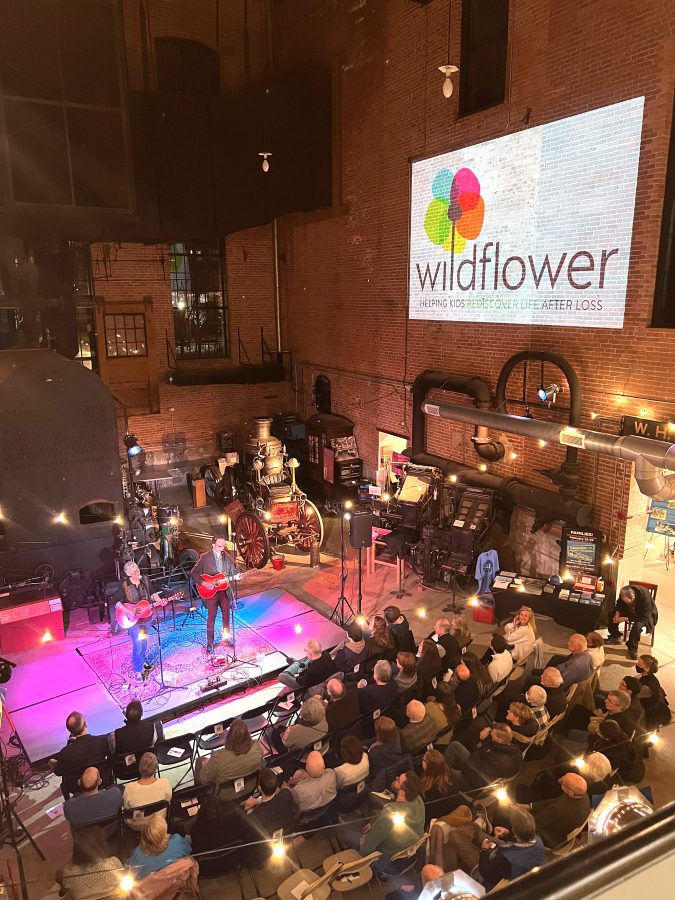
Josephina thrived and enjoyed it so much that she became a counselor in training for Beaver Day.
Now almost 21, she’s ready to graduate from Ithaca College a semester early. Grad school starts early next year.
The Davis’s are just one of many families Wildflower helped. Last year the non-profit supported 105 children. According to Executive Director Audrey Loria, 110 children get assistance this year. Once on the Wildflower roster, kids stay until they are ready for college or university. If application help is needed, they step in there too. As the company ages, it adds more and more offerings.
Last year two students were approved for trips outside the United States. One young woman is headed to Costa Rica on a service trip, and another to Italy for language immersion.
“The unique aspect of Wildflower is that we stay with them year after year until the youngest graduates,” Loria said. “It’s a true commitment we make. We do not take it lightly.”
They have “extended tuition relief by more than $2.8 million for the families we supported,” Loria said.
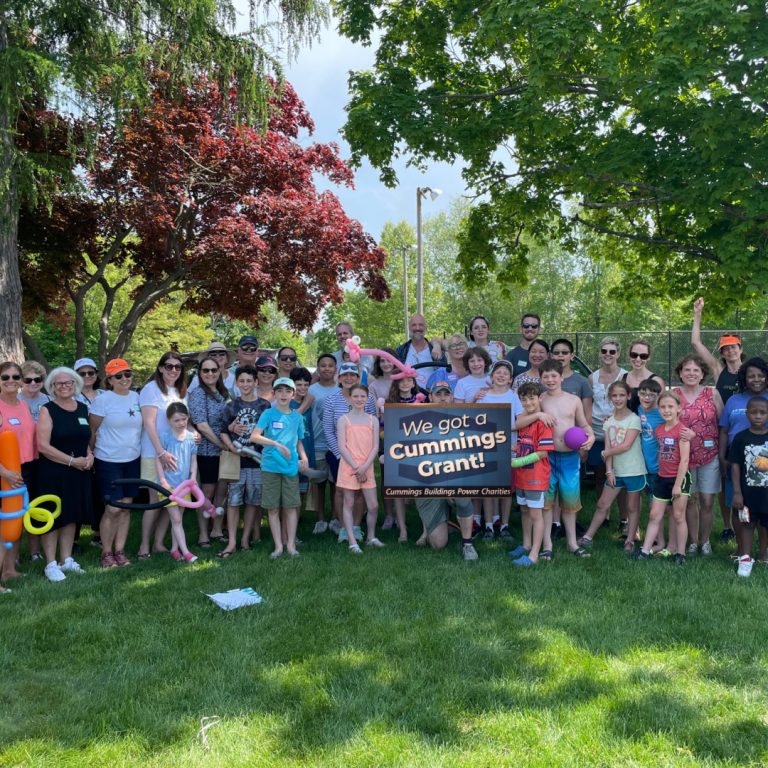
Loria, executive director for the last 13 years, said they initially received $100,000 from the Cummings Foundation. They applied for another grant and received more than requested. Cummings provided a sustaining grant for $350,000 or $35,000 for each of the next ten years.
“It’s a real housekeeping seal of approval,” Loria said of the Cummings Foundation’s rigorous vetting. Cummings approval prompts others to donate and keeps the five-staff Lincoln Street non-profit in business helping children and teens.
Wildflower focuses on those who’ve lost a parent, Loria said. It all started with Cyndi Jones, who went through the same experience.
She lost her husband at 40. She had three children, aged eight, five, and three months. Jones had support from family and friends. But, Loria said, it waned over time, and being the breadwinner during the summer is sometimes daunting.
While other parents look forward to those carefree summer months, those without a partner feel the burden and the guilt.
Summer camp was a saving grace. Loria said Jones relied on camp directors and owners to make the price reasonable. Her children went to overnight camp, letting Jones escape the grief at home.
“Her children returned with more resilience, increased confidence, new skills, and new friends,” Loria said.
“While we focus on the kids, there is definitely a benefit for the parent,” Loria said. “The healthier the parent, the more stable the home environment can become, which is also better for the kids.”
Cyndi, a psychotherapist who now chairs the Wildflower board, founded Wildflowers in 2005.
“It was,” she said of her husband’s loss, “a challenging time.”
Trying to be present for her children and work simultaneously was daunting. She was “on the move every minute of every day. That went on for quite several years.”
“I had friends and family who were there for me,” she said. “Even with all that support, it’s so difficult. I knew there were families who did not have those supports.”
“As a grieving parent, if you’re the only one there, it’s not enough to go around.”
Jones said it takes a village, and she wanted to create one for those who didn’t have all the supports she had.
“I met a man who is presently my husband,” she said of Steven Birnbaum, the man who would help her create that village.
I shared this vision with him, just wishing there was a way for me to do something for other people.”
“We were not Bill Gates or someone who could write a check. So, he encouraged me to start a non-profit to help families.”
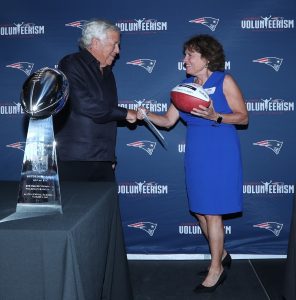
It wouldn’t have happened without him, Jones said.
“It was a very big undertaking and required a lot of dedication,” Jones said. “When we got married, he suggested we ask people to write checks for seed money to start the organization. And that’s how it started.”
The name of the organization came naturally, too. It arrived on a family hike while climbing the Tetons. Unfortunately, a fire destroyed the landscape. She didn’t expect to see anything but charred tree stumps. “I was concerned it might not be as impactful as it had been.”
Once she reached the usual spot, she saw wildflowers had pushed through the barren landscape, creating a colorful carpet of life. “Instead of seeing destruction, I saw new growth. Life will bloom again.”
Wildflower was apt.
Thankfully it fits even more for the kids who attend camps and other Wildflower-funded programs.
 If you would like to support the work of Wildflower, donations can be made through the website or mailed to the office.
If you would like to support the work of Wildflower, donations can be made through the website or mailed to the office.
Wildflower
271 Lincoln St. | Lexington, MA 02420
www.wildflowerforkids.org/ways-to-give
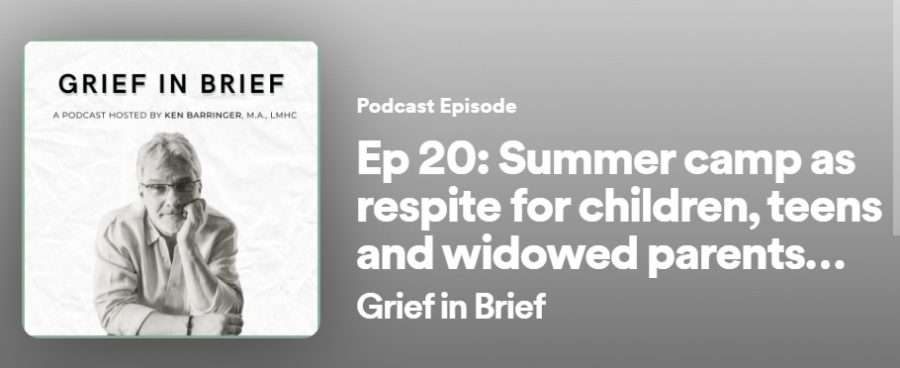
https://tinyurl.com/yfh2f937
